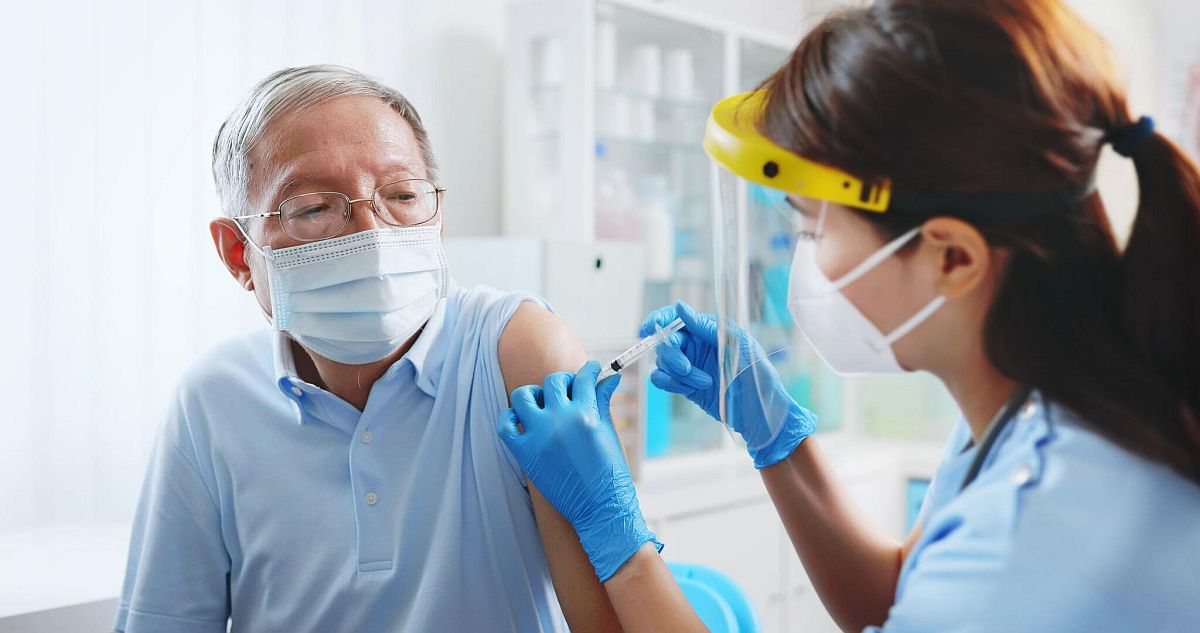KUALA LUMPUR, Dec 14 – The World Health Organization (WHO) has recommended monovalent XBB.1.5 Covid-19 vaccines across different platforms against currently circulating SARS-CoV-2 variants.
Last May, the WHO Technical Group on Covid-19 Vaccine Composition (TAG-CO-VAC) recommended the use of a monovalent XBB.1 descendant lineage, like XBB.1.5, as the vaccine antigen.
In a statement yesterday, TAG-CO-VAC advised retaining the monovalent XBB.1.5 as the current Covid-19 vaccine composition.
“This recommendation is based on the current virus evolution and breadth of immune responses demonstrated by these vaccines against circulating variants,” WHO posted on X yesterday.
“Monovalent XBB.1.5 Covid-19 vaccines across different platforms elicit broadly cross-reactive neutralising antibody responses against circulating SARS-CoV-2 variants,” the global health body said in a statement.
The WHO noted that several vaccine manufacturers – using mRNA, as well as protein-based and viral vector vaccine platforms – have updated their Covid-19 vaccines to the monovalent XBB.1.5 formulations that have been approved for use by health regulators.
“Other formulations and/or platforms that achieve robust neutralising antibody responses against currently circulating variants, including XBB- and BA.2.86 descendent lineages, can also be considered. In accordance with WHO SAGE policy, vaccination programmes can continue to use any of the WHO emergency-use listed or prequalified Covid-19 vaccines,” the WHO added.
The WHO noted that as of last December 2, XBB descendent lineages – including XBB.1.5, XBB.1.16, EG.5, HK.3 and HV.1 – accounted for 73 per cent of genetic sequences available in GISAID, and this proportion has declined since then.
Malaysia’s Ministry of Health (MOH) has yet to issue an updated Covid-19 vaccine advisory for 2024 or to announce whether it would procure monovalent XBB.1.5 vaccines, or to allow product registration of the vaccine to enable people to pay for it in private clinics.
The mRNA monovalent XBB.1.5 vaccines by Pfizer and Moderna – which also work against the EG.5 and BA.2.86 strains – have been approved by both the United States’ Food and Drug Administration (FDA) and Singapore’s health regulators for 2023/ 2024.
Singapore’s MOH recommended last October for all individuals aged six months and above to get an additional Covid booster dose for 2023/ 2024 with the updated mRNA monovalent XBB.1.5 vaccine. Eligible individuals may receive the additional dose about a year – and no earlier than five months – after their last shot.
Health director-general Dr Muhammad Radzi Abu Hassan said in a statement yesterday that the circulating Omicron variants in Malaysia are XBB.1.16, XBB.1.5, and EG.5.
“These variants do not cause severe disease, even though they are known to have a high transmissibility rate.”
Covid-19 cases in Malaysia jumped by 88 per cent to 12,757 cases in the 49th epidemiological week (December 3 to 9) from 6,796 cases the previous week.
Hospital admissions for confirmed and suspected Covid-19 cases, as well as the use of intensive care unit (ICU) beds, increased by 1.4 per cent in that period, while the percentage of Covid-19 patients needing breathing assistance machines rose by 0.5 per cent.
The MOH appears to be touting medication, as opposed to vaccination, to manage the rising Covid-19 epidemic.
Health director-general Dr Muhammad Radzi encouraged high-risk patients – like those aged 60 years and older, with low immunity, or with comorbidities, or obesity – to get Paxlovid antiviral medication.
Paxlovid is most effective when taken within five days from the onset of symptoms. High-risk groups who test positive for Covid-19 can go to the nearest health care facility, whether a public health clinic or a private general practitioner clinic, to find out if they’re eligible for Paxlovid. The list of facilities is available on MOH’s Covid-19 website or the MySejahtera app.
Vaccination helps to prevent severe disease, including death, from infection, such as the flu.








